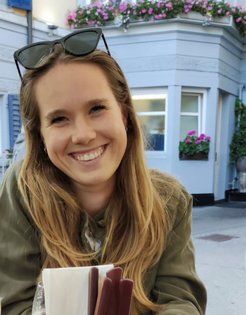Jana Ordon
PhD Student

- What fascinates you most about plant science?
Plants are essential for our life on earth. The extensive basic knowledge already available about networks and processes that take place in plants, combined with technological progress, e.g. in sequencing, enables us to ask ever more in-depth questions. In light of food security in the background of climate change and other crises, I am personally most interested in how plants communicate with various bacteria that can be both beneficial and pathogenic to the plant.
- Tell us briefly what scientific questions you are pursuing at MPIPZ
We have known for more than 20 years how plants recognize pathogenic bacteria and fungi. However, beneficial and commensal bacteria are recognized by overlapping mechanisms. Therefore, I am trying to understand how beneficial and commensal bacteria can be recruited or tolerated while pathogenic bacteria are combated.
- What/who has inspired you greatly in your career so far?
Already as a child, I wanted to understand how things work. During my biology studies, I met Johannes Stuttmann, my first scientific supervisor, who became a mentor over the years. His systematic approach to molecular problems helped me a lot to become a self-thinking scientist. At the MPIPZ, I am very inspired by the outstanding curiosity of my current supervisor Paul Schulze-Lefert and the different approaches of the strongly interdisciplinary community to a specific scientific question.
- What do you find most challenging in your career so far?
Besides hard work, most successful careers also involve a bit of luck, which as we all know, cannot be controlled by ourselves. So, there is no guarantee for this bit of luck to start a career in science. This, in my opinion is challenging but holds true for many careers.
- How do you see your future in science and why?
With every scientific question solved, at least 10 new ones arise. I think basic academic research offers the greatest opportunities to investigate the scientific questions you are most interested in, and for me this is a privilege. Therefore, I would like to continue my career in basic academic research and hopefully one day inspire young scientists with the scientific questions I ask.
